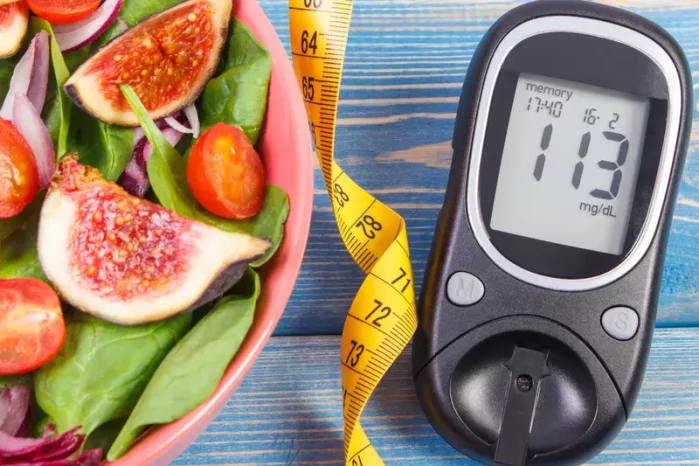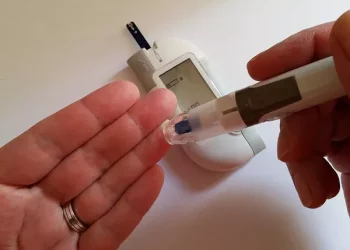Type 2 diabetes is a chronic condition that affects how the body processes glucose, leading to elevated blood sugar levels. Managing Type 2 diabetes involves several key components, with one of the most important being diet. What we eat directly impacts our blood sugar levels, insulin sensitivity, and overall health. While there is no one-size-fits-all approach to the diabetic diet, there are certain foods that can be particularly harmful for people with Type 2 diabetes, as they can cause significant spikes in blood sugar levels, contribute to insulin resistance, and increase the risk of complications.
In this article, we will discuss the worst foods for Type 2 diabetes and explain why these foods should be avoided or consumed in limited quantities. By understanding how specific foods affect blood sugar control, individuals with Type 2 diabetes can make more informed choices and better manage their condition.
Understanding Type 2 Diabetes and the Role of Diet
Before diving into the specific foods to avoid, it is important to understand the underlying mechanisms of Type 2 diabetes and the role that diet plays in managing the condition. Type 2 diabetes occurs when the body either becomes resistant to insulin or cannot produce enough insulin to maintain normal blood sugar levels. As a result, glucose (sugar) builds up in the bloodstream, leading to hyperglycemia.
Diet plays a crucial role in managing Type 2 diabetes because the food we consume directly affects blood sugar levels. Certain foods, especially those high in refined sugars and unhealthy fats, can cause rapid spikes in blood glucose. On the other hand, foods that are high in fiber, healthy fats, and lean protein can help stabilize blood sugar levels and improve insulin sensitivity.
While there is no “diabetes diet,” there are specific foods that can exacerbate the condition and make it harder to manage. Below, we explore some of the worst foods for people with Type 2 diabetes.
1. Refined Carbohydrates
Refined carbohydrates are among the worst foods for Type 2 diabetes. These foods have been processed to remove much of their fiber, leaving behind mostly simple sugars that can cause rapid spikes in blood glucose. Refined carbs are typically found in foods such as:
-
White bread
-
White rice
-
Pasta made from refined flour
-
Baked goods (cakes, pastries, cookies, etc.)
-
Breakfast cereals that are high in sugar
Why are refined carbohydrates harmful for Type 2 diabetes?
Refined carbs are digested quickly, leading to a sharp increase in blood sugar levels. This rapid rise in glucose forces the pancreas to release large amounts of insulin, which can eventually lead to insulin resistance. Over time, this can make it more difficult to control blood sugar levels.
Additionally, refined carbs are often low in essential nutrients like fiber, vitamins, and minerals. Fiber helps slow the absorption of glucose into the bloodstream, which is crucial for maintaining stable blood sugar levels. When fiber is stripped away, the body is left to process a large amount of sugar in a short period, increasing the risk of hyperglycemia and insulin resistance.
What to choose instead?
To reduce the impact of carbs on blood sugar, it is better to opt for whole grains, such as:
-
Whole wheat bread
-
Brown rice
-
Quinoa
-
Oats
-
Whole grain pasta
These whole foods contain more fiber, which helps to slow the absorption of sugar into the bloodstream and improve blood sugar control.
2. Sugary Beverages
Sugary beverages, such as sodas, sweetened juices, and energy drinks, are among the worst offenders for people with Type 2 diabetes. These drinks contain high amounts of added sugars, which can cause blood sugar levels to spike quickly.
Why are sugary beverages harmful for Type 2 diabetes?
Unlike solid foods, sugary drinks provide little to no satiety, meaning they don’t help fill you up. As a result, people often consume more calories and sugar than they realize. Additionally, sugary drinks are rapidly absorbed into the bloodstream, leading to a quick rise in blood glucose levels. This can put a strain on the body’s insulin response and exacerbate insulin resistance.
Research has shown that people who regularly consume sugary beverages are at a higher risk of developing Type 2 diabetes. Moreover, sugary drinks are associated with an increased risk of weight gain, which is a key risk factor for Type 2 diabetes.
What to choose instead?
Instead of sugary beverages, individuals with Type 2 diabetes should opt for healthier drink options, such as:
-
Water
-
Unsweetened iced tea
-
Sparkling water with a splash of lemon or lime
-
Herbal teas (without added sugar)
For those who crave sweetness, using a sugar substitute like stevia or monk fruit can provide a satisfying taste without the blood sugar spike.
3. Fried Foods
Fried foods, such as French fries, fried chicken, and fried snacks, are typically high in unhealthy fats, particularly trans fats. These fats can contribute to insulin resistance, which makes it harder for the body to regulate blood glucose levels effectively.
Why are fried foods harmful for Type 2 diabetes?
Fried foods are often cooked in oils that contain trans fats, which are known to increase inflammation in the body. Chronic inflammation is linked to insulin resistance, making it more difficult for the body to respond to insulin and control blood sugar levels.
Moreover, fried foods are typically high in calories and can lead to weight gain. Excess weight, particularly around the abdominal area, is a key risk factor for Type 2 diabetes and can worsen insulin resistance.
What to choose instead?
Instead of fried foods, individuals with Type 2 diabetes should focus on healthy cooking methods, such as:
-
Grilling
-
Baking
-
Roasting
-
Steaming
-
Stir-frying with healthy oils like olive oil
These methods preserve the nutritional value of the food without adding unhealthy fats that can negatively impact blood sugar levels.
4. Processed Meats
Processed meats, such as bacon, sausages, hot dogs, and deli meats, are not only high in unhealthy fats and sodium but are also linked to an increased risk of Type 2 diabetes and other chronic conditions, such as heart disease and cancer.
Why are processed meats harmful for Type 2 diabetes?
Processed meats contain high levels of saturated fats, sodium, and preservatives. These ingredients can increase inflammation and contribute to insulin resistance. Additionally, the high sodium content in processed meats can raise blood pressure, which is a common concern for individuals with Type 2 diabetes, as they are already at increased risk for heart disease.
Furthermore, the nitrates and nitrites used in processed meats have been shown to have negative effects on insulin sensitivity, making it harder for the body to regulate blood glucose levels effectively.
What to choose instead?
For a healthier protein source, individuals with Type 2 diabetes should opt for:
-
Lean meats (such as chicken, turkey, and lean cuts of beef or pork)
-
Fish and seafood
-
Plant-based proteins like beans, lentils, tofu, and tempeh
These alternatives are lower in unhealthy fats and sodium, making them better options for blood sugar management.
5. Full-Fat Dairy Products
Full-fat dairy products, such as whole milk, full-fat cheese, and cream, can negatively impact blood sugar control due to their high levels of saturated fats. While dairy provides essential nutrients like calcium and protein, the type of fat in full-fat dairy can contribute to insulin resistance.
Why is full-fat dairy harmful for Type 2 diabetes?
Saturated fats are known to increase inflammation and impair insulin function, which can make it harder for the body to manage blood sugar levels. Studies have shown that consuming high amounts of saturated fats, particularly from animal sources, can worsen insulin resistance and increase the risk of developing Type 2 diabetes.
What to choose instead?
For a healthier alternative, individuals with Type 2 diabetes should opt for:
-
Low-fat or fat-free dairy options, such as skim milk or low-fat yogurt
-
Plant-based milk alternatives, such as almond milk, soy milk, or oat milk
-
Dairy-free cheeses made from nuts or seeds
These options are lower in saturated fat and can help improve blood sugar control.
6. Sweets and Desserts
Sweets and desserts, such as cakes, cookies, pastries, and ice cream, are often made with refined sugars, unhealthy fats, and refined flour, all of which can cause significant blood sugar spikes. While they may be tempting, these foods are not ideal for individuals with Type 2 diabetes.
Why are sweets and desserts harmful for Type 2 diabetes?
Like sugary beverages, sweets and desserts provide large amounts of sugar that are quickly absorbed into the bloodstream. This can cause rapid spikes in blood sugar, leading to hyperglycemia and worsening insulin resistance. Additionally, many desserts are high in unhealthy fats and calories, contributing to weight gain and further increasing the risk of complications.
What to choose instead?
Instead of traditional sweets, individuals with Type 2 diabetes can opt for:
-
Fresh fruit (such as berries, apples, or citrus fruits)
-
Sugar-free gelatin
-
Desserts made with sugar substitutes like stevia or erythritol
-
Dark chocolate (in moderation, as it contains less sugar)
These alternatives satisfy sweet cravings without the blood sugar spikes associated with traditional desserts.
7. Alcohol
While moderate alcohol consumption may not directly impact blood sugar, excessive drinking can cause fluctuations in blood glucose levels. Alcohol can interfere with the liver’s ability to release glucose into the bloodstream, which can result in hypoglycemia (low blood sugar).
Why is alcohol harmful for Type 2 diabetes?
Excessive alcohol consumption can lead to unstable blood sugar levels. In addition to the immediate impact on glucose regulation, alcohol can also contribute to weight gain, high blood pressure, and liver damage, all of which can exacerbate the complications of Type 2 diabetes.
What to choose instead?
If alcohol is consumed, it should be done in moderation, and individuals with Type 2 diabetes should be mindful of the type of drink they choose. Dry wine, light beer, and spirits without sugary mixers are better choices than sugary cocktails or sweet wines.
Conclusion
Diet plays an essential role in managing Type 2 diabetes, and the foods that you eat can have a significant impact on blood sugar control. By avoiding or limiting foods that cause rapid spikes in blood sugar, such as refined carbohydrates, sugary beverages, fried foods, processed meats, and sweets, individuals with Type 2 diabetes can help stabilize their glucose levels and reduce the risk of complications.
Incorporating whole grains, lean proteins, healthy fats, and fiber-rich vegetables into the diet can help improve blood sugar control and promote overall health. Working closely with a healthcare provider or dietitian can provide further guidance on making healthy food choices tailored to individual needs.
By making informed dietary decisions, individuals with Type 2 diabetes can live healthy, active lives and manage their condition effectively.
Related topics:
What Causes Sugar to Drop After Eating?

























